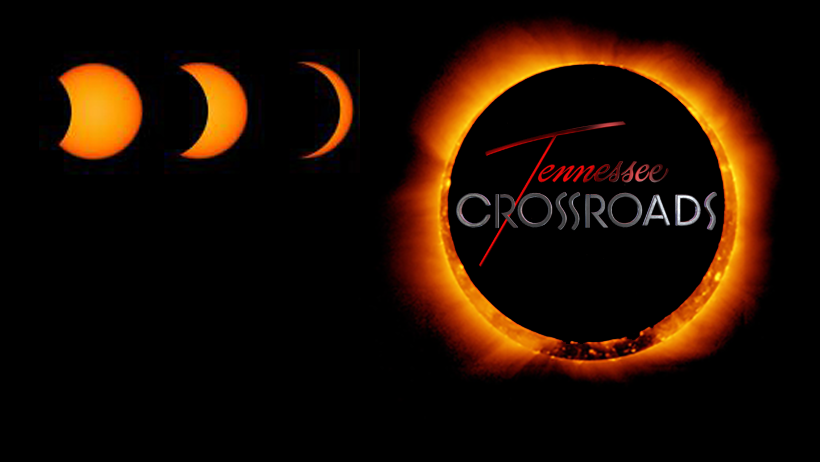
Cue appropriate celestial soundtrack… On Aug. 21, 2017, millions of people across the country will cast their eyes skyward to observe the total solar eclipse. The lunar shadow will be 73 miles wide and will take a little more than 90 minutes to travel from Oregon to South Carolina, crossing 13 states en route. Nashville is making an all-out party of the natural phenomenon and NPT’s Tennessee Crossroads is getting in on the fun with a Facebook Live event with host Joe Elmore and Crossroads correspondent Danielle Colburn Allen.
Standing in the shadow
The Tennessee Crossroads’ Total Eclipse Event will be streamed live beginning at 1 p.m. CT on Aug. 21 from the Adventure Science Center during the Music City Total Solar Eclipse Festival. On eclipse day, Joe will talk with David Lockett of Camp STEM from the museum’s roof. Lockett, by the way, is an NPT American Graduate Champion. You won’t need special glasses to watch our coverage – and we’re protecting our camera lens with a special filter – but in order to safely view the eclipse in person, you’ll need to take a few precautions. Joe explains what to expect in the following video.
Our Facebook Live event will last approximately 30 minutes; after that, consider following the eclipse’s path on NPT2, where we’ll carry South Carolina ETV’s live coverage from 1:30 to 2:30 p.m. Find more information here.
Out of this world
The eclipse will be over by early afternoon, but there’s so much more to see. NOVA’s Eclipse Over America premieres on NPT Monday, Aug. 21, at 8 p.m. and will include footage shot around the U.S. on that day, as well as information provided by solar and solar storm detection scientists.
August 23 is the 40th anniversary of the launch of NASA’s first Voyager spacecraft and a 7 p.m. encore presentation of Eclipse Over America will be followed at 8 p.m. by The Farthest — Voyager in Space, a two-hour feature documentary about the Voyager missions to our solar system’s outer planets. This program combines CGI imagery, stunning photographs of planets, and a soundtrack full of stellar songs. Four decades after leaving Earth, both nuclear-powered spacecraft continue to send data back to Earth. Voyager 1 has traveled more than 12 billion miles and Voyager 2 more than 10 billion. In 2012, Voyager 1, which is traveling at more than 320 million miles per year, became the first human-made object to leave our solar system, ushering humanity into the interstellar age.
Little stars
 When the Propulsion family needs to return to their home planet, Sean and Sydney join Jet on an intergalactic journey in Ready Jet Go!: Back to Bortron 7. The one-hour special airs several times on NPT and NPT3 PBS Kids in August, beginning Monday, Aug. 14. To find airtimes, go to wnpt.org/schedule. Ready Jet Go! airs weekdays at 6 a.m. and 1 p.m. on NPT and at 5:30 p.m. weekends on NPT3 PBSKids.
When the Propulsion family needs to return to their home planet, Sean and Sydney join Jet on an intergalactic journey in Ready Jet Go!: Back to Bortron 7. The one-hour special airs several times on NPT and NPT3 PBS Kids in August, beginning Monday, Aug. 14. To find airtimes, go to wnpt.org/schedule. Ready Jet Go! airs weekdays at 6 a.m. and 1 p.m. on NPT and at 5:30 p.m. weekends on NPT3 PBSKids.